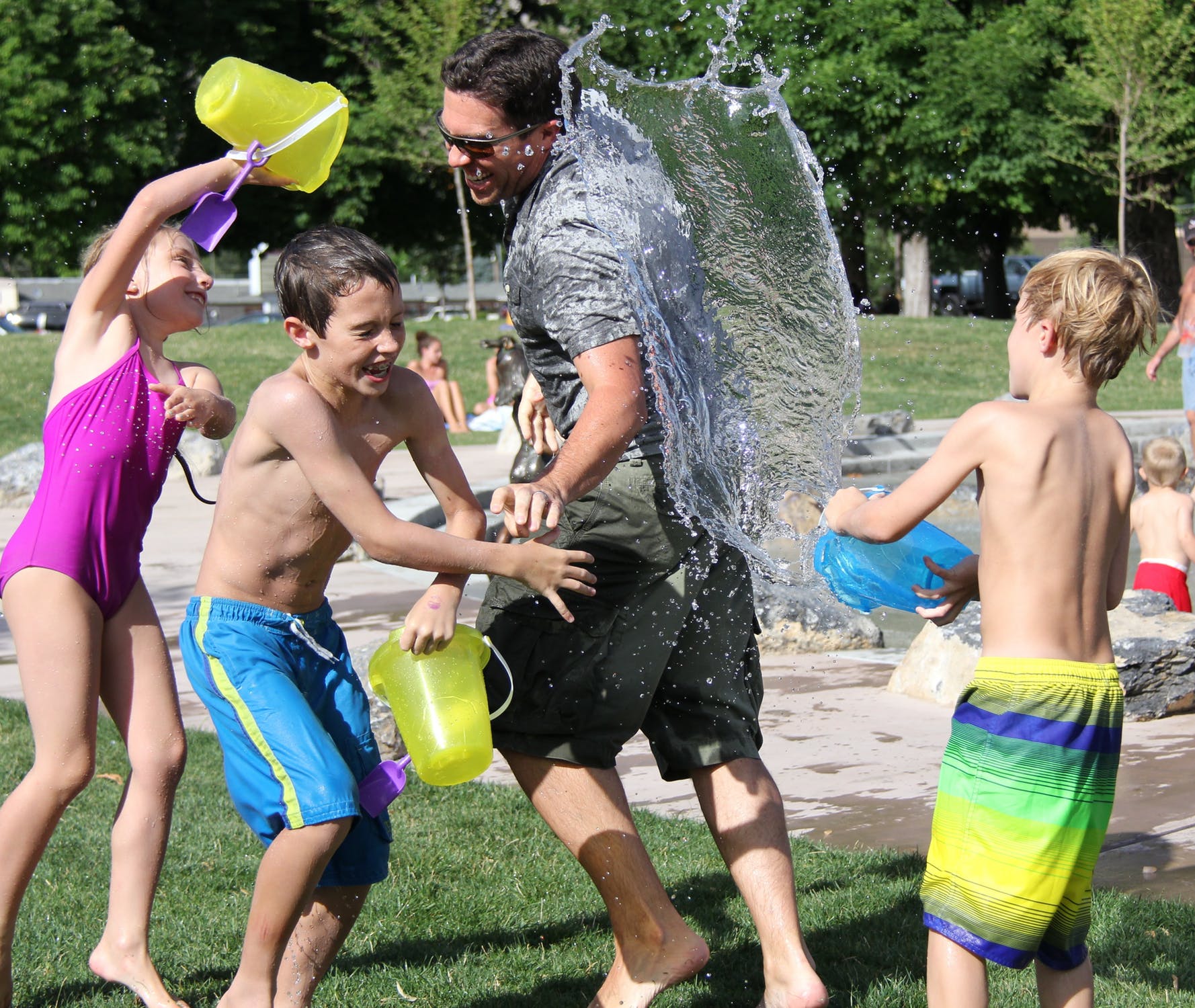Emergency Preparedness in Southwest Virginia
By definition “emergencies” are a serious, unexpected and often dangerous situation that requires immediate action. Dr. Stephanie Harper, Director of the Roanoke City and Alleghany Health Departments wants families and businesses to proactively prepare for a wide variety of potential emergencies by taking some simple, proactive steps.
Too often, emergencies catch us off guard and cause us to suffer more than necessary. The best way to prepare for the unknown is to stay informed about potential risks in our area, make and store a first aid and survival kit, and make a response plan to share with your family, friends and coworkers.
Create a Kit
First Aid and Survival kits are available for purchase from a multitude of retail stores with a variety of essential supplies. However, whether you purchase or create your own kit, you should include these basic supplies:
• Water
Clean Drinking Water is essential to life and not always readily available in emergency situations. Pack 1 gallon of water per person, per day. It is recommended you have at least a 2 week supply of both food and water in your home and a 3 to 5-day supply available to take with you if there is an evacuation.
• Food
Pack food that is non-perishable and easy to prepare.
• A manual can opener
• A change of clothes for each person
• Sturdy footwear
• Sleeping bag or two blankets per person
• Flashlight
• Battery powered or hand-crank radio
• Extra Batteries and bulbs
• Medications and medical items
Pack a minimum of a 7-day supply of any medications you and your companions may require.
• Multi-purpose tool such as a Swiss Army Knife
• Sanitation and personal hygiene products
• Prepare for all sanitation considerations by storing toilet paper, soap, garbage bags, plastic bags, a 5-gallon bucket with lid, disinfectant, premoistened towelettes and feminine hygiene products in addition to deodorant, toothbrush, toothpaste, Eye glasses, contact lenses and supplies for use, diapers etc.
• Copies of personal documentation
Each member of your group should keep copies of a medication list and pertinent medical information; proof of address; deed/lease to home; passports; birth certificates; photographs clearing showing the face of each family member (including your pets) and any insurance policies.
• Cell phone with charger
• Family and emergency contact information
• Set of keys to both vehicles and properties in a waterproof container
• Cash and credit cards
• Emergency blanket
• Map of the area
• Medical first aid kit with bandages, wound ointments, and care instructions
Additional supplies you should consider depend on the needs of your companions and the types of disasters common to your area.
• Games, toys, and books
• Pet Supplies: Such as Food, Water, Leash, Collar, Tags, Carriers, a picture of your pet
• Tools such as wrenches, duct tape, a whistle and utility knife
• Matches
• Rain Gear
• Towels
• Work Gloves
• Plastic sheeting
• Scissors
• Household Liquid Bleach
• Fuel for your vehicle
You should store first aid kits in both your home and car and switch out your food and water supply every 6 months to maintain freshness. Also check medical supplies and hygiene products regularly to avoid using expired products. A free customizable checklist is also available at http://www.vdh.virginia.gov/OEP/.
Make a Plan
Take the time to create a plan with your loved ones, so each person knows what to do in the event of an emergency. Consider these questions to start.
• Who will worry?
Create a call tree of all the essential people you must provide an update on your wellbeing to in the event of an emergency. Be aware that all of your neighbors will be contacting their loved ones as well and the phone lines can get jammed. Be patient as you try to get through, but also consider using alternative communication methods. Text messages can transfer faster than a call in emergencies and some social media sites now offer alternative methods for letting multiple people know you are okay quickly.
• Where could we be in the event of an emergency?
Commuters and parents of students should consider the possibility that their family may not be home and all together in the event of an emergency. Think about the places where your family spends time such as school, work, or even in the car commuting. Talk to your children about the emergency plans at their school and the emergency plan in place at your place of employment. Have a plan for communicating and reuniting.
• Should I stay or should I go?
Plan for both possibilities. Use all available information to assess the situation. Watch tv, listen to the radio or check the internet for instructions. If you decide to leave, have a plan for how, when and where you will reassemble with loved ones. Choose several destinations in different directions so you have options in an emergency. Lastly, don’t forget to keep your emergency kit with you.
Be Informed
In Southwest Virginia, we are likely to face snowstorms, rainstorms, hurricanes, and even the occasional tornado and earthquake, but there are other emergencies that can happen in your own home such as a fire or medical emergency. Some disasters are natural while others are tragically man-made. It is critical to learn the types of emergencies that may likely occur in your area, so you can best prepare. There are many resources available online to help. Here are some of our favorites:
• The Virginia Department of Health – http://www.vdh.virginia.gov/OEP/
• The Virginia Department of Emergency Preparedness – http://www.vaemergency.gov/readyvirginia
• American Red Cross – http://www.redcross.org/get-help/prepare-for-emergencies/
• CDC – https://emergency.cdc.gov/
• FEMA – www.Ready.gov and https://community.fema.gov/
Additionally, there are valuable resources right here in our community. Watch your local television news, listen to local radio and follow these resources and local government organizations and municipalities via their websites and/or social media. In the event of an emergency, these resources will help you assess each situation as it occurs and can help you identify where you can receive assistance such as food, water or shelter if the need arises.
Get Involved
Once you and your family are prepared, there are also opportunities to help out others in your community. You can contact the resources above to determine the best ways to volunteer and provide resources to those who need to it most in an emergency.
For additional public health information visit the Virginia Health Department website at www.vdh.virginia.gov or the national Centers for Disease Control website at www.cdc.gov.




